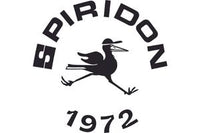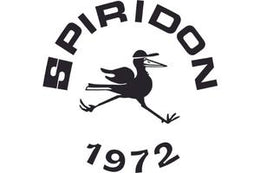History - Spiridon, since 1972

A CULT JOURNAL
______
SPIRIDON LOUIS
A modest Greek runner who came from nowhere, with no notable future, became, to everyone's surprise, Olympic champion in the marathon of the first Olympic Games of the modern era. Athens, 1896.
___
SPIRIDON, INTERNATIONAL RUNNING JOURNAL (1972-1989)
It is no coincidence that its founders chose to name their running magazine SPIRIDON, the first issue of which appeared in April 1972. From the outset, they imagined their magazine as a forum to celebrate ALL runners . Not just champions; but also the dilettantes, the men, the women, the young people, the old ones whom they encourage to run freely in "an atmosphere of recreation, conviviality and humanity which one did not find in traditional athletics " .
___
FREE RACES
At the time, long-distance running was reserved for a male elite, that of stadiums and athletics leagues. It is synonymous with suffering, performance, competition. We don't run for fun. We run to win. Women are relegated to short distances. No more than 800 m in competition. Young people and seniors are set aside, deemed not efficient enough. Coaches only want champion seed.
Outside the stadiums, races are almost non-existent. In France, practically nothing is done outside the Athletics Federation.
Spiridon will help change this by organizing (and supporting) the first " free races ". Thus, the magazine participates in the birth, in 1974, of one of the first mountain races, which has become legendary for trailers, "Sierre-Zinal" (the Race of Five 4000).

She is also present alongside Jean-Claude Moulin when he launched, in 1973, "Marvejols-Mende", despite the threats of sanctions promised by the supervisory authorities of athletics. The event welcomes champions and anonymous, licensees and amateurs, track racers and drivers, men and women, young and old in a party atmosphere never seen before.
The other motto of the Spiridon movement, which advocates pleasure in effort, is: " the performance of agreement, the party first ". It's a revolution. The Spiridon spirit was born.
___
THE SPIRIDON SPIRIT
Everywhere in France, but also in Switzerland, Italy, Germany, Quebec, runners now wear, as a sign of belonging to the movement, the flocked orange T-shirt of the little barefoot man designed by Karel Matejovsky with this slogan " Everyone run with us! "
What some have called “the Spiridon phenomenon” draws much of its substance from broken down barriers. Spiridon has helped revolutionize the world of running by defending free running and running for fun, but also by fighting for running for all.
___
THE RACE FOR ALL

___
THE REAPPROPRIATION OF NATURE
By advocating non-stadium racing, Spiridon also claims a return to nature. The magazine encourages runners to reclaim their natural environment. A parallel is made between the sobriety of the places of practice (dirt road) and the stripping of the outfit (shorts, a pair of shoes, a T-shirt). The effort is all the healthier when the practice has nature as its framework.
Finally, "the Spiridon spirit" is due to the personality and the brilliant pen of the journal's contributors who have breathed poetry and spirit into their movement. By promoting a healthy, free and natural vision of running, they invented a new philosophy and contributed to a real revolution, both sporting and cultural.
___
Freedom, generosity, pleasure, inclusion, respect for people and nature. Such are the "spiridonian" values. Values which are dear to us as human beings and runners and which we believe, more than ever, are important to defend today.

